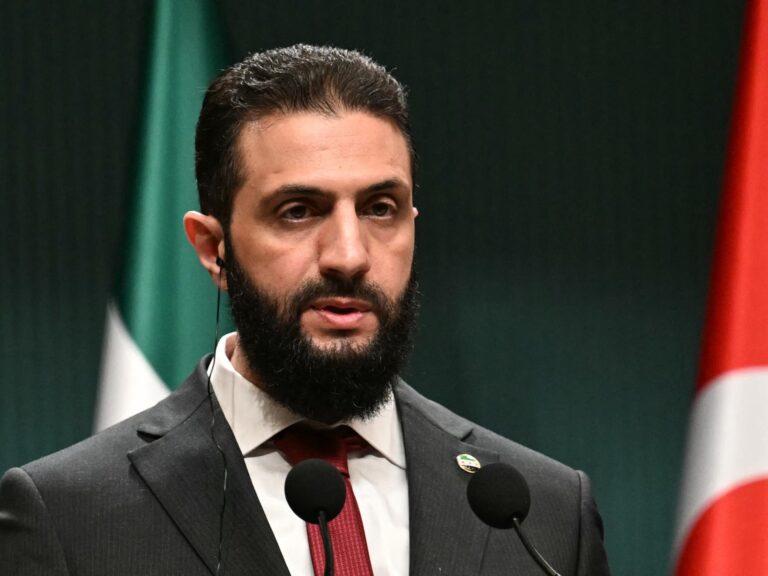Syria’s de facto leader reiterated his pledge to deliver a democratic political transition as talks on the country’s future opened.
Ahmed al-Sharaa on Tuesday urged his countrymen to unite and pledged to establish a transitional justice body, as he welcomed participants of a national dialogue aimed at guiding the country’s political transition following years of civil war and the fall of former President Bashar al-Assad.
He also said the state will hold a monopoly on weapons, a key issue in a country in which numerous armed groups have spent recent years fighting.
The meeting in the country’s capital Damascus was billed by al-Sharaa and his ruling Hayat Tahrir al-Sham (HTS) as a chief milestone to a democratic and inclusive transition and state reconstruction. However, there is concern that the process is being rushed.
“I urge all Syrians to stand united and hand in hand to heal the wounds and wash away the pains after decades of dictatorship,” Sharaa said in his opening address, during which he announced the formation of a transitional justice committee.
“Over the past two months, we have worked on pursuing those who committed crimes against Syrians,” al-Sharaa added.
“The unity of arms and their monopoly by the state is not a luxury but a duty and an obligation,” he continued.
Al-Sharaa has previously said Kurdish-led forces who also fought against al-Assad’s regime for years should be integrated into the national army.

Plans for the conference had been in flux until the last minute, and the sudden announcement on Sunday that it would go ahead came as a surprise to many observers, who expected it to take one or two more months to set up.
With invitations sent out as the organising committee was still travelling around Syria to meet community leaders, some confusion and criticism were directed at the organisers.
Opposition politician George Sabra posted on X that he had received an invitation on February 23 to be present in Damascus. However, he had to decline as he lives in exile in France and could not make it to Syria in time.
According to local media, about 600 candidates are attending the talks and will participate in a packed agenda for the single day of working sessions.
The participants will hold working sessions on transitional justice, the structure of a new constitution, reforming and building institutions, personal freedoms, the role of civil society and the country’s economy.
While the conference recommendations are non-binding, its outcome is being closely watched as the international community weighs decision whether to lift sanctions imposed on Syria during al-Assad’s rule.
One of the most important expected deliverables is a new constitution, although whether that can be accomplished in one day remains to be seen.
Scepticism
The short notice and single-day schedule have helped promote scepticism in some quarters.
Many in Syria’s minority communities – including Kurds, Christians, Druze and members of Assad’s Alawite sect – are concerned for their future and yet to be convinced by the new rulers’ promises of inclusive governance.
HTS was formerly affiliated with al-Qaida, although it broke ties and al-Sharaa has since preached coexistence.
Parties in Syria’s autonomous Kurdish administration condemned what they called the “token” representation of minority groups.
In a joint statement, the 35 parties said: “Conferences with token representation… are meaningless, worthless, and will not contribute to finding real solutions to the country’s ongoing crisis.”
Dalia Dalati, a public employee who was displaced during the country’s nearly 14-year civil war, said that she does not expect “any results,” and that three months after the fall of al-Assad, the economic and security situations remain tenuous.
Orthodox Archbishop Elia Tohme, one of the invitees, said it was “too early to judge” whether the conference was a meaningful chance for citizen input in the new order.
However, Iman Shahoud, a judge from Hama who was participating, said she considers the conference “the day of true victory, because you can see in front of you all the sects and components of the Syrian people are present, women and men”.

